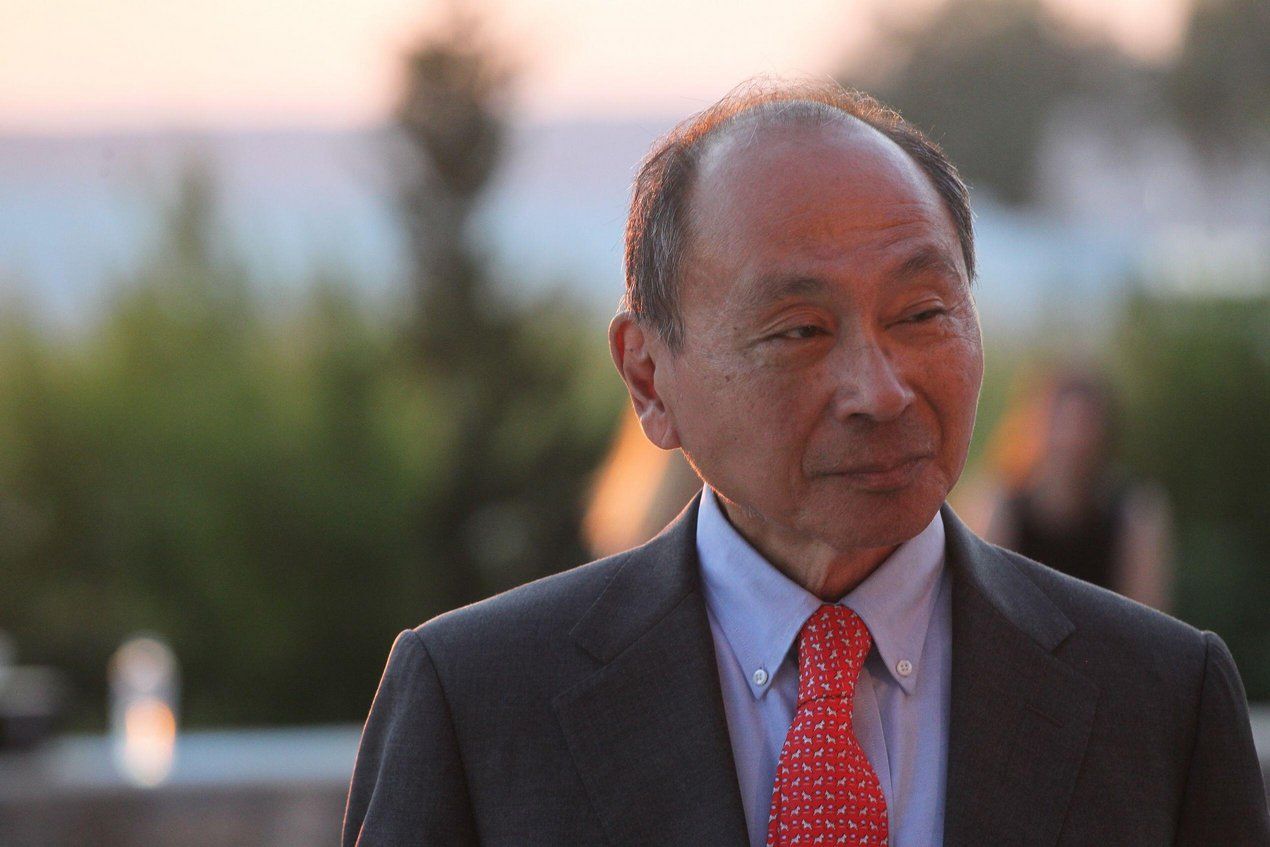Identity
Liberalism—Decline or Survival
It would be a mistake to conflate “adaptive” with “good.” But similarly, it is a mistake to conflate “good” with “sustainable.”

The world is still coming to terms with Charles Darwin. Denial of evolution is usually associated with the evangelical Right—a world entirely and perfectly created in seven days—but the Left is just as fond of disowning conclusions that the application of Darwin’s theory produces when they are ideologically undesirable. The uncomfortable truth is that evolution is not just something that happens to animals at a glacial pace—it is a process that plays out in any system where replication is related to success.
Human societies are no exception to this rule and bearing this in mind can be surprisingly useful for understanding the world around us. From a Darwinian perspective, the point of a culture is to replicate itself. From this, all else follows. The rules and rites that govern a society fall into shape as systems for maximising the fitness of a culture for surviving its environment: laws reduce and resolve conflict, religious prohibitions on eating “tainted” food maintain hygiene, sexual taboos and morality minimise the spread of disease and ensure that there will, ultimately, be children raised in the faith to pass it on.
In this framework, we can still view tradition as a connection to the past, a romantic thread linking people together through time. But we should also see it as a set of rules that says “here; this is how you build a lasting society,” or as Donald Kingsbury described them “a set of solutions for which we have forgotten the problems.” And in line with Chesterton, before we dismantle those solutions, we should consider why they were introduced in the first place.
Not all behaviours are adaptive; some are vestigial, remnants of a tradition previously of great importance. Some are not harmful enough to be shed, inefficiencies in a world full of such things, or covered for by other habits. Some were useful and are rendered obsolete by changes in technology, or the capability of society to organise itself. Some are maladaptive, and in the process of being selected against, or sustained in a bad equilibrium. Many traditions, however, are adaptive no matter how much they serve to limit current happiness. Taboos on sexual promiscuity do limit the spread of diseases. Monogamy does hold families together to provide resources for young children. Moral restrictions on abortion and contraceptives do help to keep fertility at or above replacement levels.
It would be a mistake to conflate “adaptive” with “good.” But similarly, it is a mistake to conflate “good” with “sustainable.” As a project, liberalism is concerned primarily with increasing the freedom of the individual, in the belief that allowing people to live the lives they choose is the best way to form a just society. And it is true that loosening some cultural constraints may well increase the sum total of human wellbeing, giving people the freedom to live and work as they see fit. Loosening all constraints, however, can dismantle the social structures that coordinate behaviour and ensure that a culture survives. Total freedom, freedom from obligation and expectation, can prove corrosive. Hedonism, as the ultimate purpose of a society, does not always motivate the sort of sacrifices necessary to keep that society operating.

Looking at the precipitous decline in Western fertility, in particular, there is a distinct sense that raising children, rather than something expected and enforced by norms, is viewed as the undesirable acquisition of an obligation. While this view may be all well and good from a snapshot utilitarian perspective, caring only about the current generation’s happiness, it is less than ideal for the long-term health of a society. And while liberalism cannot sustain itself through “natural” fertility, it also reacts furiously to natalism. Natalist policies that do not constrain behaviour at the very least put a heavy thumb on the scale, and will always involve parents leaving the workplace for at least some period. The first part constrains human freedom; the second involves sacrifice (career and income for family), which is frowned upon socially when “worth” and “productivity” are conflated.
Because of these self-destructive features, liberalism might have ended up as a sort of high status meme, a subculture surviving by passing itself on to the small pool of children of its adherents and through the odd conversion of the children of others. Quite why it did not is a curiosity, and may well be a quirk of history: So long as the idea can spread to enough people initially—aided by the shaken faith in the old certainties of a post-war world—then it may simply achieve dominance before that natural reproduction becomes a problem. For society at large, the deleterious effects only really become clear over the longer term, with declining fertility and cultural cohesion taking time to make their way into the general consciousness. Either way, we are now at a point where liberalism is the dominant social form across Western societies and it is confronted by the problem of sustaining itself with below-replacement fertility.
The short-term fix for a declining population has been to turn towards immigration in ever greater numbers. But the belief that someone else’s children are the future is not a natural one for a people to hold, making immigration levels a perennially contentious topic. It also neglects the fundamental point that those raised by parents of other cultures may not always turn out to be liberals. Other cultures are perfectly capable of replicating themselves, and an environment which makes minimal demands of the individual can find itself hosting communities with very different values and norms.
In this framework, radical progressivism looks like an adaptation of liberalism primed to deal with these faults. A liberal culture that wishes to survive must be able to assimilate large numbers of arrivals, both in the sense of rendering the current population amenable to the process, and in ensuring that newcomers carry its values onwards.
Contemporary progressivism resolves this by replacing liberal ideals with a borrowed and bastardised form of evangelical Christianity. It views change as desirable only when it acts as a ratchet towards its preferred social values. It does not tolerate dissent—its adherents impose stringent social penalties on apostates, and wherever possible, attempt to twist the machinery of government into providing legal enforcement. Followers are called upon to proselytize continuously, at home, at work, in the streets, in the sheets. They are strongly in favour of open borders, and highly hedonistic, winning converts by promising them the chance to pursue their heart’s desire in a coalition against the prevailing norms of the day. It is not, in many ways, a particularly liberal philosophy; it is in some senses more traditionally conservative, in displaying aggressive intolerance of those that violate its norms. The difference is that the norms and values it espouses are an unusual set of sexual and social freedoms, while those it opposes tend to be more associated with traditional morality.
In the long-term, a functioning society governed according to this ideology looks something like a religious order replenishing itself with new initiates, a cuckoo culture in which one demographic continuously replaces the previous one, over and over. Whether this model would actually work in the longer term is unclear. It suits many groups to make themselves a part of a rainbow coalition while they seek to lift restrictions on their behaviour, but whether conservative religious communities will be seen as natural adherents to an ideology staunchly in favour of sexual liberation in the longer term remains to be seen. It is possible that progressivism would find that, while it succeeds in population replenishment, it fails to spread itself to new arrivals, finding that the immigrants necessary for societal maintenance in the end remain conservatives of their own tradition.
At present, while extremely prevalent online, liberalism’s would-be successor ideology is held by a considerably smaller section of the general population. The segments of the population that are growing are often traditionalists; religious women give birth to more children than their secular counterparts, as do conservatives more broadly. We can be confident that, while the future of the West may look quite radically different to that envisaged by current elite opinion, it will also look rather different to its current form. A culture which combines high migration alongside low integration and fertility will be replaced in the end, whether by a more conservative form of its own values, or something entirely different.






